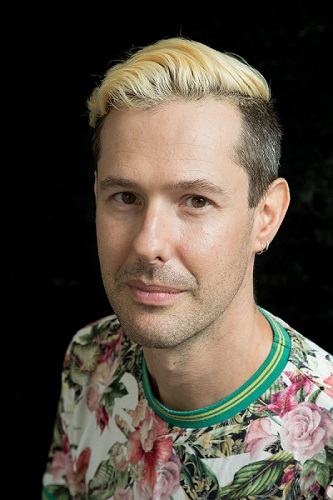Liam Livings On Gender And Sexuality
23 October 2019
 Liam Livings, the RNA’s diversity and inclusion officer, offers some thoughts on a few topics that have been on his mind, and how they affect why and what he writes.
Liam Livings, the RNA’s diversity and inclusion officer, offers some thoughts on a few topics that have been on his mind, and how they affect why and what he writes.
Gender and sexuality
A while ago, I was talking to my mum about how my cousin had come out as trans. My cousin, who I’ll call A, was born a female. From the age of 14, he asked to be referred to as male. He is also in the process of thinking about how and when he would like to transition his body.
My mum’s first question, when I told her about A coming out as trans was, “Don’t you think 14 is a bit too young?”
To which I asked her, “When you were 14, did you know that you were female, and that you are attracted to men?”
She nodded.
“Then I think you’ll find you’ve answered your question.”
I was in an online discussion, about how children in schools are taught about sexuality and gender identity at quite an early age. Somebody commented that when she was 13 or so, all she worried about was which songs were high in the charts, and what fashionable clothes she wanted to buy.
This is great, and don’t get me wrong, teenagers all over the world will be thinking about these things too. The difference though is that if you’re trans, gay, lesbian or bisexual, then you will also be questioning your gender identity and your sexuality.
If you are someone, as my mum is, who is cis gender (identifies as the same gender she did at birth), and heterosexual, society is constructed in such a way that you don’t question either of these two things. They are just as they are, simply taken for granted like the air you breath, no need to question them. Let’s get on with our lives.
However, if you are gay or trans, then rest assured you will spend a lot of time questioning these.
At the age of 13, I knew that I was not like other boys. I knew what I enjoyed looking at, and I also knew that I didn’t want to kiss a girl. The problem was, that I spent until the age of 18 being told that this was wrong, dirty, an illness, and I was also trying to fight it. Had I had information about this at school, it would have meant the intervening five years would have been much more pleasant. It would have also meant that I would have been better informed in terms of safe sex etc. When I went to my first gay men’s youth group at the age of 18, I asked why there were bowls of condoms for people to take for free.
“But nobody is going to get pregnant when two men are having sex,” I said to the youth worker nonchalantly.
“We’ll speak about this later, but for now, have a cup of tea.” The youth worker gently took me aside later on during the evening and explained the reasons why I might want to pick up some of the condoms in the bowl.
This sort of education can actually save lives.
Is it really so hard to understand that people can have different experiences of their sexuality and gender identity than your own?
I write characters who have a different sexuality and gender identity than my own and I’m sure most authors do too.
And is it also so difficult to understand if somebody identifies as a different gender from that they were born with, then they would like to be addressed as such?
If you were called Sharon, and somebody started calling you Shaz, and you didn’t really like this, is it really so difficult to understand that Sharon would turn round to the person and say, “Please don’t call me Shaz, I would like to be called Sharon.”
When a trans person changes their name, to match with their gender identity, people should be compassionate, and use their preferred names. It’s really none of your business how the other person decides they want to be called. But it is your business to be kind and compassionate and do as they requested.
If in doubt, just think of Shaz or rather Sharon.
I write gay romance, with two men falling in love. But I also write their mums, friends, colleagues, sisters and brothers. A wide range of characters from different gender identities and sexualities. Just like in life.



